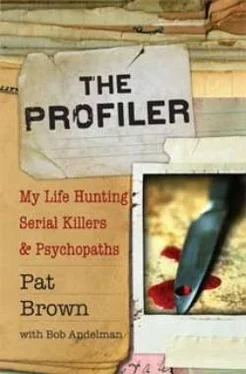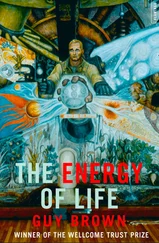Even there, however, we were selective, preferring foreign students above other boarders. Our first was from Iran; he stayed with us for three years. Over the years we hosted quite a few from China, so there was often Chinese food cooking in the kitchen, and my children learned a lot about Asian lifestyles. I thought these relationships added color to my children’s experience. Our boarders were all graduate students and most of the time studied engineering or mathematics or something else quiet and peaceful. Nobody drank; we had strict rules. They couldn’t have overnight guests, so nobody brought home ladies or guys from bars. Everything fit with the lifestyle we lived.
I did read the paper, but while our county had crime like anywhere else, my neighborhood didn’t. It was a peaceful little town with one thousand single-family homes, no apartments, and no businesses except on the outer limits. We have always had our own police force, our own mayor, and our own town council. The weekly town bulletin would report that there was a loud party, or maybe somebody’s teenager did some silly thing, but we hardly paid any attention to the police report.
I eventually became a certified medical sign language interpreter, working with deaf people who were brought into area hospitals. That was when I started learning more about crime, because I dealt with emergency room admissions, and there were usually people there who were victims of crime.
I SPENT TEN years working in the emergency rooms at DC General, Washington Hospital Center, and Howard University. I learned a lot about forensics when my clients rolled in on stretchers.
Washington Hospital Center has one of the finest trauma units in the area and anyone who has a choice will tell the ambulance driver to bring him there. DC General-which closed in 2001-was located in the most violent ward of the city, a city with a gunshot victim a day. There was a big book that sat on the admitting desk in which they wrote the names of everybody who died each night, and some nights the list seemed to go on forever. It was a true community hospital where all the homicide, assault, and rape victims went, so when you worked at DC General, you saw just about everything.
Whenever I was called in, it was usually for something pretty vicious. I would walk in and see guys with holes in their bodies and blood pouring out of them from gunshot wounds. I saw people with stab wounds, people who had been beaten. I saw a lot of domestic abuse. I interpreted for dozens of rape cases, and because I was an interpreter, I was in the room with the doctor the entire time. If the patient went into surgery, I often went with them until they went to sleep. If they didn’t go to sleep, I stayed throughout the operation and watched the doctors work.
Many times, I was called back within the next few days if the patient had a follow-up appointment with the doctor. I got to know a lot of the regulars. I spent time on the psych wards, too, learning a good deal about psychology, and I began to recognize the “frequent flyers.” If they were psychopaths, I got to watch them over a decade’s time; I watched their ongoing manipulations and how they behaved in the hospitals when they were trying to mislead the doctors, telling outright lies and seeking drugs they didn’t need. I could see the psychological progression.
I studied forensic medical books while my patients slept, and all around me in the hospital I saw what I was reading about-what a stab wound, an abrasion, and a laceration looked like, even what happened when somebody took a hammer to the head. I looked at x-rays with the technicians and the doctors. I saw cases come to life. It was a tremendous learning experience.
People who came into these ERs weren’t terribly wealthy. They lived in bad neighborhoods, suffered a lot of injuries, and were often victims of crimes.
An interpreter is considered a machine in a hospital. An interpreter is not allowed to interfere with the process between the medical staff and the patient; they are only there to interpret what the medical staff says and what the patient says. The deaf patients understood this very well, so they knew whatever they told me before or in between the doctors coming in and out of the room I was not allowed to express to the staff. So some of them, the psychopathic ones, would behave one way with me, and they would act in a different way with the doctor. It was absolutely amazing to watch.
Eric, for example, liked to get Percocet. He claimed to have sickle cell anemia. He had a friend named Desmond who did have sickle cell anemia and for whom I also interpreted and from whom Eric learned all his tricks. Desmond had legitimate sickle cell attacks that would put him in the hospital because he was in such severe pain. I interpreted during many of Desmond’s sickle cell crises, so I knew what they looked like and how he often needed Percocet to take home with him. I saw how agonizing it was for him. He sometimes had problems getting the drugs he needed because a lot of medical personnel don’t understand sickle cell and they thought he came in to get drugs to sell to other people. I can’t honestly say that Desmond wouldn’t do this on the side. He was poor and sick and he needed money. His buddy Eric, however, learned how to copy Desmond’s behavior quite convincingly.
Eric would lie on a stretcher, clutching his chest, signing, “Oh, the pain is so bad! Oh, pain, pain, pain!”
“Where is the pain?” the doctor would ask, and I’d sign for Eric.
“Pain in the chest, pain in the back, it’s really bad, bad,” Eric would sign back.
“On a scale of one to ten, how bad is it?”
Eric would sign, “Ten, ten, ten,” putting his thumb up in the air and shaking it back and forth for “ten.”
“What do you need?” The doctor would always ask this, as each sickle cell patient had a regimen that worked specifically for him.
“Intravenous Demerol and Percocet” was always Eric’s reply.
The doctor would say, “Okay,” and leave the room to order the medication.
Sometimes Eric would clutch my hand to his chest or his face in front of the doctor as if I were providing him comfort. Once the doctor would walk out of the room, Eric would open up one eye and a big grin would hit his face. He’d sit up and sign, “Hey, what’s up?” and chat on perfectly calmly.
Then he’d see the doctor coming in his direction and would throw himself back down and groan, the pain having returned again.
I was not allowed by the code of ethics of interpreters to tell the doctor that the guy was a lying dog, that he did not have any pain at all. I just watched the doctor write out the prescription and hand it to Eric, and then he’d be happy. He got what he wanted and he’d saunter out the door. I think it took five years for one of the doctors to say, “I don’t think that guy has sickle cell!”
THESE WERE THE kinds of things I watched at the hospital as an interpreter. I was an observer more than I was ever a participant in a lot of this, and I was never allowed to speak for myself.
But one day I had to speak up. I broke the code of ethics, because I couldn’t stand it anymore.
A young man came into the hospital. He was a really strong-looking fellow who played football at Gallaudet, the university for the deaf in Washington, D.C. Students from all over the world came to Gallaudet to get the college education not available to them in their home countries. This young man was from Africa and he came in with kidney failure. Nobody knew why he was in kidney failure. He did not use drugs, he did not drink, and nobody the medical staff interviewed knew anything about this young man’s lifestyle that would have led to such an illness. He was a sports and health nut.
His mother was in Chicago and they notified her that her son was in critical condition with kidney failure.
Читать дальше












